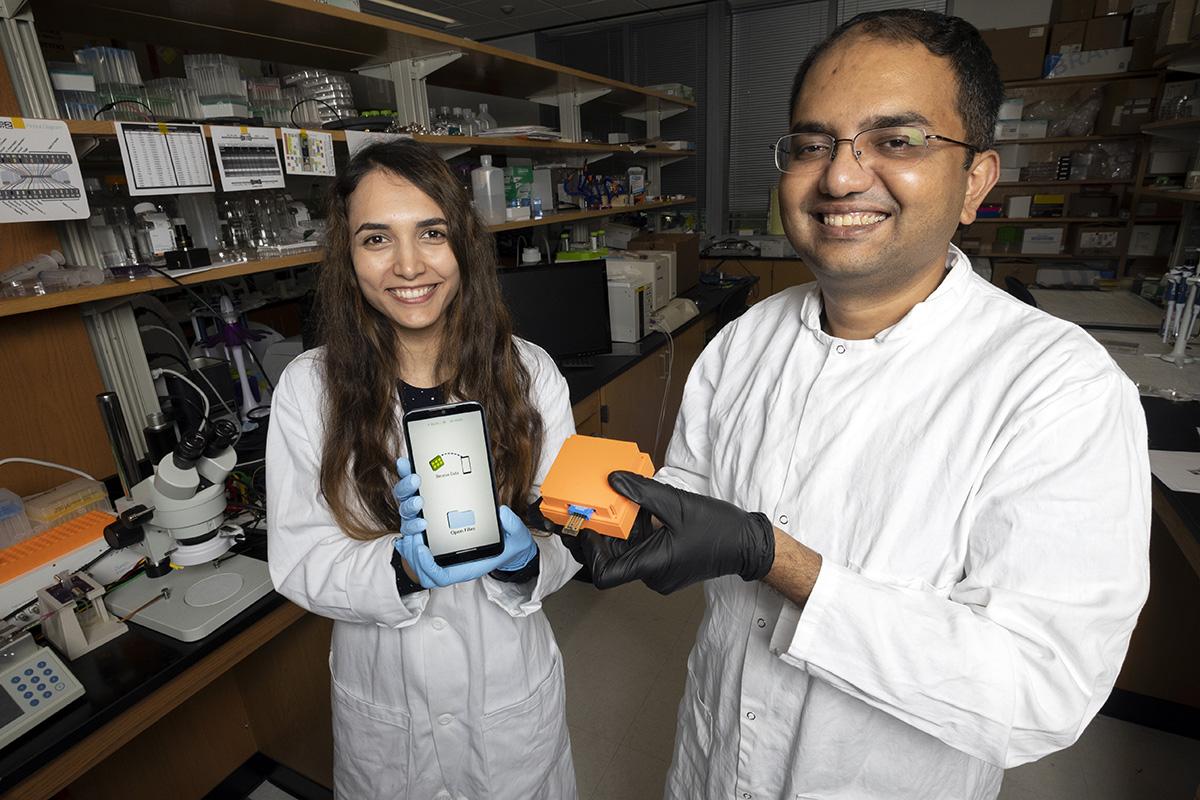The approach is simple, cheap, and even can quantify antibody levels in the body
A single drop of blood from a finger prick. A simple electronic chip. And a smartphone readout of test results that could diagnose a Covid-19 infections or others like HIV or Lyme disease.
It sounds a bit like science fiction, like the beginnings of the medical tricorder used by doctors on Star Trek. Yet researchers at Georgia Tech and Emory University have taken the first step to showing it can be done, and they’ve published their results in the journal Small.
Postdoctoral fellow Neda Rafat and Assistant Professor Aniruddh Sarkar created a small chip that harnesses the fundamental chemistry of the gold-standard lab method but uses electrical conductivity instead of optics to detect antibodies and indicate infection.
“At the heart of many diagnostics, something binds to something, and a signal is produced. That's where the optics interact and generate a light signal,” said Sarkar, a faculty member in the Wallace H. Coulter Department of Biomedical Engineering at Georgia Tech and Emory. “What Neda has done is figured out a way of making that binding event happen between a patient sample and something from the sensor itself, so that signal will be directly electronic.”
The “something” Rafat is using is silver, an electrically conductive metal. Her approach creates small silver deposits in tiny wells of the microchip, completing an electrical circuit that can be measured with a simple multimeter.
The technique is a new approach to diagnostics like the rapid antigen tests that have become so familiar during the Covid pandemic, but the team’s tests do much more. Rafat, Sarkar, and their team of researchers created multiplex chips, which means they can detect multiple different kinds of antibodies. That allows one chip to potentially screen for multiple infections from just a single drop of blood. The team also can quantify the level of antibodies in the blood based on how much silver ends up on the chip.
Latest BME News
Jo honored for his impact on science and mentorship
The department rises to the top in biomedical engineering programs for undergraduate education.
Commercialization program in Coulter BME announces project teams who will receive support to get their research to market.
Courses in the Wallace H. Coulter Department of Biomedical Engineering are being reformatted to incorporate AI and machine learning so students are prepared for a data-driven biotech sector.
Influenced by her mother's journey in engineering, Sriya Surapaneni hopes to inspire other young women in the field.
Coulter BME Professor Earns Tenure, Eyes Future of Innovation in Health and Medicine
The grant will fund the development of cutting-edge technology that could detect colorectal cancer through a simple breath test
The surgical support device landed Coulter BME its 4th consecutive win for the College of Engineering competition.








